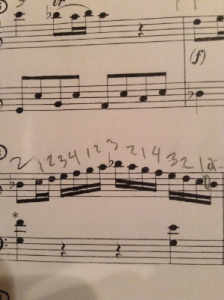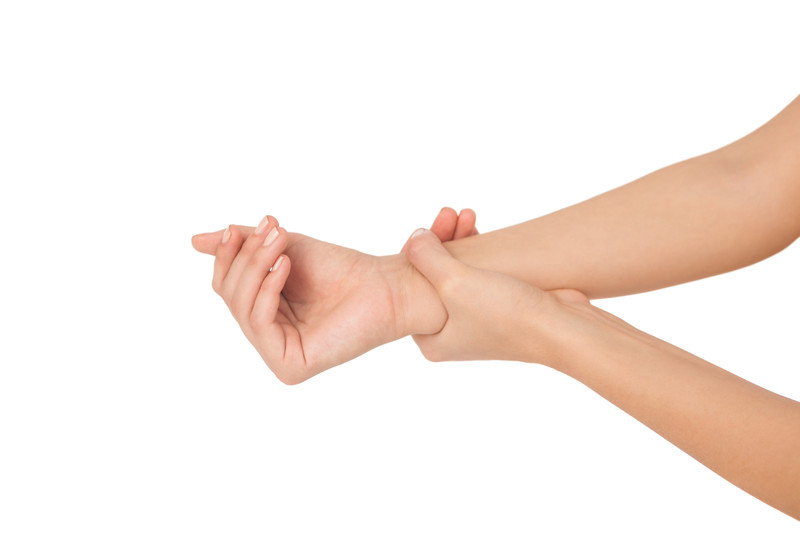Playing piano just isn’t natural! We are not born with the ability to play piano, it has to be learned. Due to the physical nature of playing the piano and the repetitive nature of practice, injuries can occur. Even the most relaxed players can experience difficulties. However, piano practice shouldn’t result in an injury and regular practice done correctly with relaxed shoulders, elbows and wrists will not lead to discomfort.
It might be that the pianistic challenge is too high resulting in tension in the hand and stress in the mind.
My first comment, playing piano isn’t natural may appear flippant, but it is quite true. Most musical instruments puts the body under a certain amount of unnatural strain and the piano is amongst the most guilty.
This strain can be complicated by the age of the pianist, physical development, technique and demands of the pieces being played.  Anyone studying piano should practice playing as naturally as possible. Some pianists I have seen adopt contorted postures, lifting fingers at odd angles, leaning too far forward, and move in other unnatural ways. Much of this takes place in an attempt to execute difficult passages, or to bring out emotion, or it may be simply a bad habit. Forming good habits is essential, as is learning appropriate technique.
Anyone studying piano should practice playing as naturally as possible. Some pianists I have seen adopt contorted postures, lifting fingers at odd angles, leaning too far forward, and move in other unnatural ways. Much of this takes place in an attempt to execute difficult passages, or to bring out emotion, or it may be simply a bad habit. Forming good habits is essential, as is learning appropriate technique.
What are the main problems?
- Tension. Productive practice ceases when the pianist has tension. On top of this it spoils the beauty of the sound. Tensed arms, elbows and wrists will hinder mobility. Try to maintain a good posture and beware of tensing in the body.
- Finger Tension. Good technique involves the use of the whole arm and if one plays only moving fingers the rest of the arm will become tense leading to discomfort as well as an over percussive sound.
- Posture. Sitting correctly is important in preventing injury. Avoid sitting too close or too far away. Slouching, raising shoulders and having elbows too close of too far from the body also cause difficulties.
- Irregular Playing. Prolonged gaps followed by sudden and long hours of practice can also cause stress and damage to the hands. It might be that there is a deadline fast approaching and in order to catch up, long hours of practice each day begins. This panic practice is stressful and hurried, skipping over all the necessary good thoughtful practice. The result is a poorer performance and tension affecting those under trained and overworked muscles from the sudden extra playing.
 How can we pianists avoid these problems?
How can we pianists avoid these problems?
Play in way that is most natural. Attempt to have an ease of playing making every movement as if the hand is still at rest. Try to stay relaxed avoiding postures and movements that feel unnatural. Taking regular breaks can help in the prevention of injury.
Keep a good posture. Poor posture such as sitting too close or leaning in causes tension. Avoid hunching shoulders too as this restricts movement of the whole upper body.
Make sure to have the most comfortable fingering. Often the fingering in the printed music is good, but treat this as a guide and take time to find fingering that is comfortable for your own hand as this could prevent injury.
Play repertoire that is appropriate to ones technical level, avoiding pieces that require more physical ability than is currently possible must be a consideration. Selecting pieces that is neither too easy or hard gives the pianist the chance of progressing in stages rather than jumping into overly challenging pieces and then having to face problems and injuries.
There are many techniques in maintaining a healthy posture when playing which are worth detailed study. Generally, focus on avoiding stress and tension, try to keep a relaxed manner and use pieces that are technically appropriate. Practice also regularly and in short bursts.
Prevention is always the best way to go, so stay alert and enjoy your healthy playing.




Add Comment